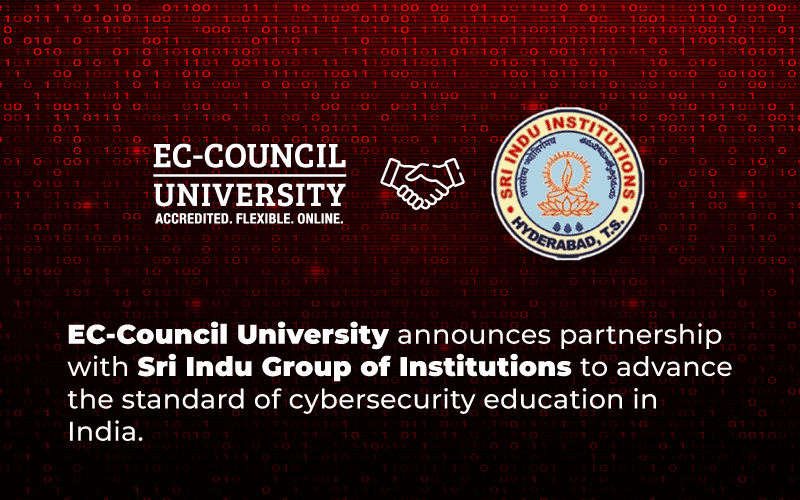The digital revolution has transformed how the world operates, with technology becoming integral to businesses, governments, and individuals. However, this dependence on technology has also introduced significant vulnerabilities. Cyber threats are more refined and damaging than ever, and organizations are looking for skilled cybersecurity professionals to safeguard their data and systems.
For students pursuing a bachelor’s degree in cybersecurity or a cyber security online degree, the ability to stand out in this competitive field requires more than just academic qualifications. It demands a combination of technical expertise, practical experience, strategic thinking, and a commitment to lifelong learning. In this blog, we’ll explore the essential skills cybersecurity graduates need to succeed in today’s ever-evolving job market.
Building a Strong Technical Foundation
At the core of any cybersecurity professional’s skill set is technical expertise. A deep understanding of how systems work—and how they can be exploited—is critical for protecting networks and data. This foundation includes knowledge of:
- Network Security: The ability to configure and manage firewalls, VPNs, intrusion detection and prevention systems are essential for creating secure communication channels.
- Operating Systems: Proficiency in Linux, Windows, and macOS is crucial, as vulnerabilities often target specific platforms. Cybersecurity experts must also understand system hardening techniques to protect these operating systems.
- Programming Languages: Skills in languages like Python, C++, Java, and scripting languages enable professionals to automate processes, analyze code for vulnerabilities, and develop custom security solutions.
- Cloud Security: With many organizations moving to cloud platforms such as AWS, Microsoft Azure, and Google Cloud, graduates must understand how to secure cloud-based infrastructure and applications.
Many cyber security online degree programs, like the one provided by EC-Council University, emphasize hands-on training in these areas, ensuring that students graduate with practical skills that align with industry demands.
Understanding Cyber Threats and Adopting an Attacker’s Mindset
Cybersecurity isn’t solely about defensive strategies—it’s also about understanding how attackers think. Ethical hacking is a critical skill that enables professionals to identify vulnerabilities before malicious actors exploit them. This involves simulating attacks to uncover weaknesses in networks, systems, and applications.
Certifications like the Certified Ethical Hacker (CEH) provide a structured approach to learning these techniques. Often embedded within a bachelor’s degree in cybersecurity, such certifications ensure that students are not only prepared to defend systems but also to anticipate and neutralize threats proactively.
Incident Response and Digital Forensics
Even with robust defenses, breaches can happen. The ability to act effectively in response to incidents is a highly sought-after skill in the job market. Incident response involves detecting breaches, containing the damage, and restoring standard operations as quickly as possible.
Digital forensics complements incident response by enabling professionals to investigate the breach, identify the perpetrators, and uncover their methods. This information is invaluable for strengthening defenses and ensuring that similar incidents don’t occur in the future. Knowledge of tools like Wireshark, Splunk, and EnCase is often taught in online cybersecurity degree programs, equipping students with the expertise to handle the entire lifecycle of a cyber incident.
Mastering Communication and Collaboration
While technical skills are crucial, the ability to communicate effectively sets exceptional cybersecurity professionals apart. Organizations rely on cybersecurity teams to explain complex problems in a way that non-technical stakeholders can comprehend. This might include:
- Presenting the results of a vulnerability assessment to executives.
- Creating security awareness programs for employees.
- Drafting comprehensive reports on incidents and recommendations.
Collaboration is equally important. Cybersecurity doesn’t operate in isolation—it involves working closely with IT teams, developers, legal departments, and management. Strong interpersonal skills ensure that cybersecurity initiatives are integrated seamlessly across an organization.
Understanding Compliance and Regulations
The global regulatory landscape is becoming progressively rigorous, making compliance knowledge a must for cybersecurity professionals. From the General Data Protection Regulation in Europe to the Health Insurance Portability and Accountability Act in the United States, businesses must adhere to a variety of standards to avoid hefty fines and reputational damage.
Cybersecurity graduates must understand how to implement and maintain compliance frameworks such as:
- PCI DSS for secure payment processing.
- ISO/IEC 27001 for information security management.
- NIST Cybersecurity Framework for risk management and mitigation.
By aligning technical strategies with regulatory requirements, professionals can ensure their organizations stay on the right side of the law.
Adopting a Lifelong Learning Mindset
Cybersecurity is a field that evolves faster than most. What works today may be obsolete tomorrow. Staying relevant demands an obligation to continuous learning, whether it’s through professional certifications, industry conferences, or self-study.
Graduates with a bachelor’s degree in cybersecurity or an online degree in cyber security should actively seek out opportunities to enhance their skills. Many programs provide access to ongoing learning resources, enabling students to keep pace with new developments in the field.
Critical Thinking and Problem-Solving
Cybersecurity professionals face complex challenges that require innovative solutions. Critical thinking skills allow them to analyze situations, anticipate potential vulnerabilities, and design proactive defense mechanisms. Problem-solving often involves working under pressure, as breaches and attacks demand swift and decisive action.
Employers value professionals who can balance analytical thinking with creativity, devising strategies that are both effective and adaptive to evolving threats.
Specialized Knowledge: Carving Your Niche
While general skills are essential, specializing in a specific area can significantly enhance career prospects. Potential specializations include:
- Penetration Testing: Simulating attacks to identify vulnerabilities.
- IoT Security: Securing smart devices that connect to the internet.
- Artificial Intelligence (AI) in Cybersecurity: Using AI to predict and counter advanced threats.
- Blockchain Security: Protecting decentralized systems and digital transactions.
Specialization not only makes professionals more marketable but also allows them to focus on areas they are passionate about.
Way forward:
Earning a bachelor’s degree in cybersecurity or a cyber security online degree is just the beginning of a rewarding career in this dynamic field. To truly excel, graduates must combine technical expertise with soft skills, regulatory knowledge, and a passion for lifelong learning.
By developing these essential skills, you’ll position yourself as a top-tier candidate ready to tackle the challenges of the modern cybersecurity landscape. Whether your goal is to protect sensitive information, innovate new defense mechanisms, or lead organizational security initiatives, the right skill set will be your greatest asset in achieving success.
Choose a program that not only provides academic knowledge but also supplies you with the practical skills and certifications needed to thrive. The cybersecurity job market is vast and full of opportunities—ensure you’re prepared to seize them.








